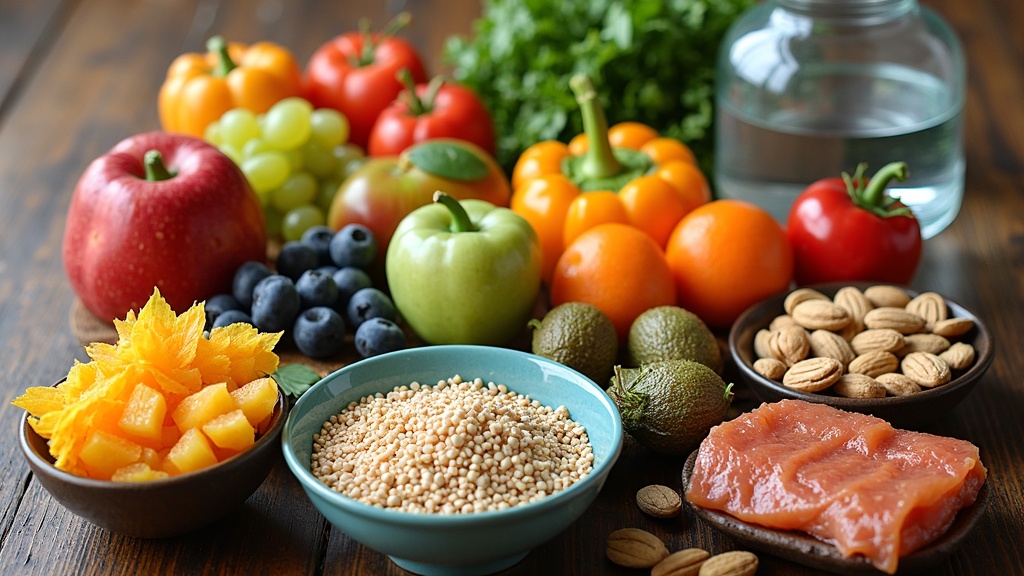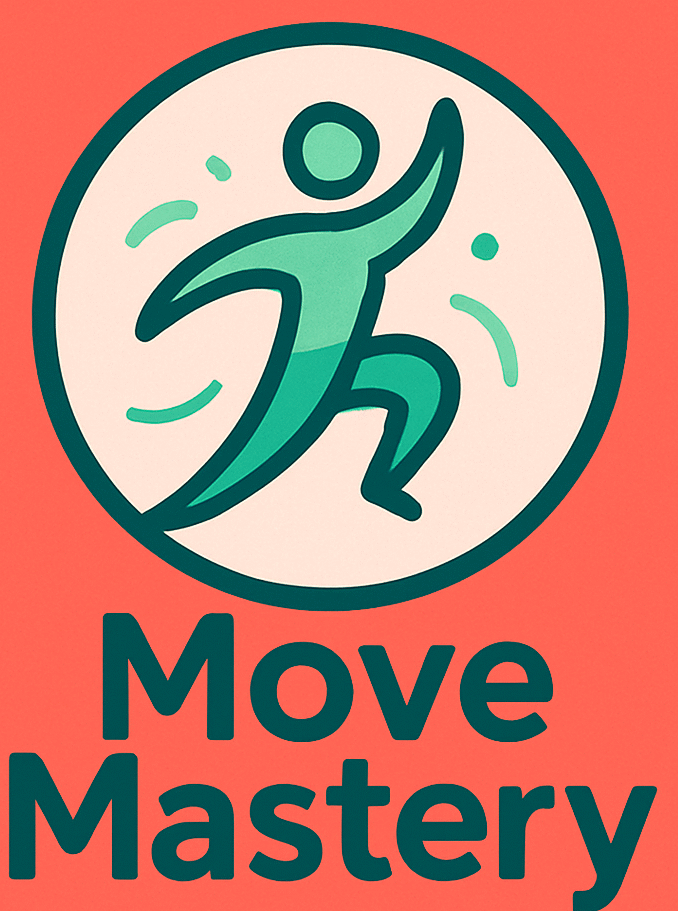 If you want the best results from your bodyweight workouts, what you eat can make a big difference in how you feel and how well you recover. Nutrition supports energy, muscle repair, and strength gains, even if you’re training without any weights. But a lot of people overlook what to eat before and after their workouts, missing out on an easy boost to their progress.
If you want the best results from your bodyweight workouts, what you eat can make a big difference in how you feel and how well you recover. Nutrition supports energy, muscle repair, and strength gains, even if you’re training without any weights. But a lot of people overlook what to eat before and after their workouts, missing out on an easy boost to their progress.
I’ve learned the hard way that skipping a good meal after a tough workout leaves me feeling drained and sore for much longer. On the flip side, the right balance of protein, carbohydrates, and healthy fats helps me recover quickly and keeps my motivation high for the next workout.
This guide explains the best nutrition for anyone doing bodyweight exercise, gives examples you can use right away, and answers the questions I hear most often about fueling your workouts for strength and energy. Proper nutrition isn’t just for bodybuilders—it’s a simple and effective way to get more out of every session, whether you’re working out at home or outside.
Set Clear Nutrition Goals for Bodyweight Training
The food I choose depends on my workout goals. For fat loss, I focus more on lean proteins, high fiber carbs, and lots of vegetables to keep me full. If I want to build strength or muscle, I add a few more carbohydrates and healthy fats to support recovery and performance.
Questions to Consider:
- What is my main goal, fat loss, muscle gain, or improved fitness?
- How often am I working out each week?
- How do I feel during or after workouts, energized or exhausted?
- Am I recovering well, or do I feel sore for days?
Example Nutrition Goals for Bodyweight Workouts:
- Get 1.2–2.0 grams of protein per kilogram of bodyweight each day
- Eat a source of carbohydrates before my workout for energy
- Have a snack or meal with protein and carbs within two hours after finishing exercise
- Drink enough fluids before, during, and after workouts
Clear goals help me plan meals that keep my energy up and muscles recovering between sessions. Ideally, these goals get reviewed now and then, since they can change depending on progress and how your body feels. Even if you don’t follow strict numbers, aiming for a balanced approach will keep you on track.
Best Foods to Fuel Bodyweight Exercise
Bodyweight exercises like pushups, squats, lunges, planks, and burpees use lots of muscle groups and burn energy quickly. For the best performance, I focus on three main nutrients: carbohydrates, protein, and healthy fats. Getting the right mix helps me power through my sets and recover faster afterward.
Carbohydrates for Energy
Carbs are the body’s top pick for energy during intense exercise. Whole grains, fruit, beans, and vegetables are my top choices because they give steady, long-lasting energy. Simple options like bananas or whole wheat toast are perfect an hour before a workout, giving you a noticeable boost without making you feel too full.
Protein for Muscle Recovery
Protein helps muscles rebuild and get stronger after you challenge them. Eggs, Greek yogurt, chicken breast, tofu, cottage cheese, and beans make great protein sources. I aim for a serving of protein with every meal and snack, especially after my workout. On training days, spreading protein intake throughout the day gives better results than having it all at once.
Healthy Fats for Lasting Fullness
Fats like those found in avocado, nuts, seeds, olive oil, and fatty fish keep me full and support overall health. I include small amounts throughout the day but keep my preworkout meals lower in fat to avoid stomach upset. Including fats earlier or later in the day helps with satiety and brain function, both of which are important for sticking to a workout routine.
What to Eat Before and After a Bodyweight Workout
Preworkout Nutrition
Eating a small meal or snack 1–2 hours before my workout makes a big difference in my energy levels. I keep it light and focus on easy to digest carbohydrates with a little protein, such as:
- Oatmeal with berries
- Banana with a spoon of peanut butter
- Whole grain toast with scrambled eggs
- Low fat Greek yogurt with fruit
This kind of meal keeps me from running out of steam halfway through and helps me perform my best from the very beginning.
Proving the Benefits of Post-Workout Nutrition
Right after I finish a workout, my muscles are like sponges. They absorb nutrients more quickly to rebuild and get stronger. Research from the Journal of the International Society of Sports Nutrition shows that eating protein (about 20–30 grams) with carbs after strength exercise reduces muscle soreness and speeds up recovery (JISSN, 2017).
I see a noticeable difference in how quickly I recover and how hard I can train the next day if I eat a snack or balanced meal within two hours of finishing my bodyweight session. Some examples I rely on include:
- Grilled chicken wrap with spinach
- Rice bowl with tofu and veggies
- Low fat chocolate milk with a banana
- Egg omelet with whole grain toast
Drinking water is really important, too, especially after tough sets that leave me sweating a lot. Staying hydrated helps your muscles work better and eases postworkout tiredness. You might want to add a pinch of salt or try coconut water on especially hot days, to replenish lost electrolytes.
Sample Day of Eating for Bodyweight Exercise
Having a simple plan makes it easier to stay consistent. Here’s an example of what a full day of eating looks like for me on training days:
- Breakfast: Overnight oats with chia seeds, banana, and almond butter
- Postworkout Snack: Greek yogurt with mixed berries
- Lunch: Brown rice bowl with grilled chicken, black beans, avocado, and salsa
- Afternoon Snack: Apple slices and cottage cheese
- Dinner: Baked salmon with roasted sweet potatoes and broccoli
This setup gives me steady energy, helps my muscles recover, and keeps hunger in check. On days when my schedule is busier, I’ll batch cook some of these meals ahead of time to make it easy to grab and go. Swapping in different fruits or adding other veggies keeps things interesting, too.
Common Questions About Nutrition and Bodyweight Training
Do I need to use supplements if I do bodyweight exercise?
I mostly get what I need from regular food. Protein powders or bars can be useful if I’m short on time, but they aren’t necessary if my meals are balanced and I’m getting enough protein from foods I enjoy. Occasionally I’ll add vitamin D, B12, or fish oil if my doctor recommends it. Otherwise, real foods are my main fuel.
What if I train early in the morning and can’t eat much?
If I work out first thing, I sometimes grab a small snack, even half a banana or a few bites of toast. Eating something—even if it’s little—helps prevent dizziness or fatigue. I focus more on a bigger breakfast after the workout. If I can’t eat at all, I make sure to have a good meal the night before and get hydrated as soon as I wake up.
Is it ok to eat carbs if I want to get lean?
Yes, carbs provide energy and help with recovery. The key is to eat them in portion sizes that fit my activity level. I pick whole food options like fruits, vegetables, oats, and whole grains for the best results. If I have less movement on rest days, I just shrink the portion, not cut them out completely.
How much water should I drink during a bodyweight workout?
I aim for at least 8–16 ounces of water before, during, and after a bodyweight session. If I’m sweating heavily or it’s hot out, I make sure to drink extra and sometimes add a bit of salt to my water to replenish lost minerals.
Eating Well Keeps Bodyweight Training Fun
Staying consistent with healthy eating isn’t always easy, especially when life gets busy. But sticking to real, wholesome foods and eating on a regular schedule helps me bounce back from bodyweight workouts faster. Trying new recipes, mixing up my meals, and even meal prepping for a few days at a time keep things interesting and take the stress out of planning.
Quick Steps to Improve Bodyweight Workout Nutrition:
- Plan balanced meals with protein, healthy carbs, and some fat throughout the day.
- Have a small snack one hour before your workout if possible.
- Eat a meal or snack with protein and carbs within two hours after your workout.
- Drink water regularly before, during, and after you exercise.
The food you eat can help you feel stronger, recover better, and enjoy bodyweight workouts even more. The more you pay attention to what fuels you best, the more progress and enjoyment you’ll get from your training. Make nutrition a steady part of your routine and you’ll notice the difference in no time!
